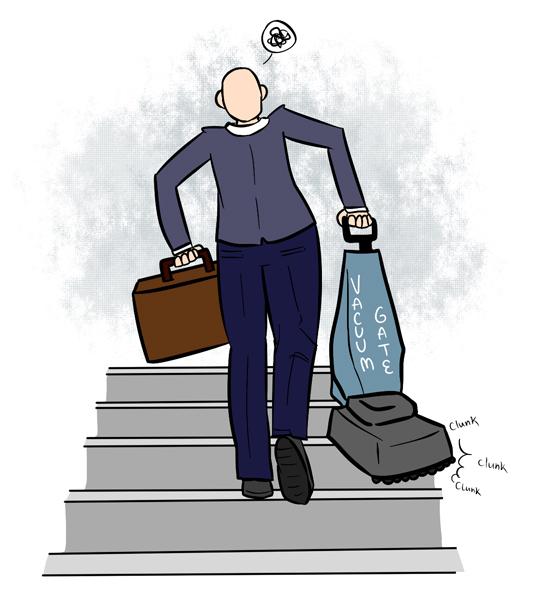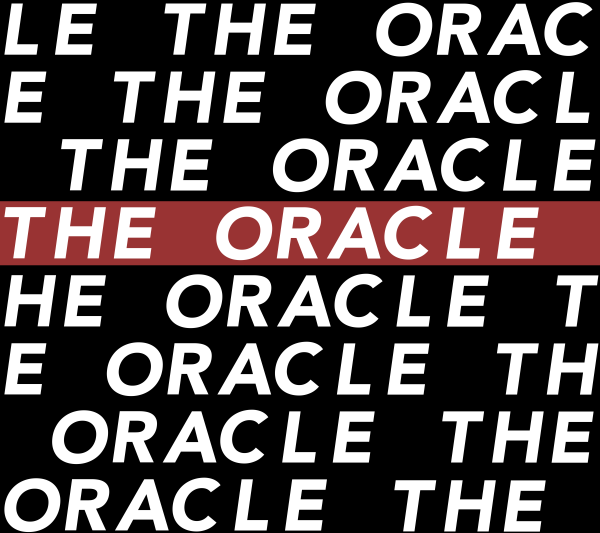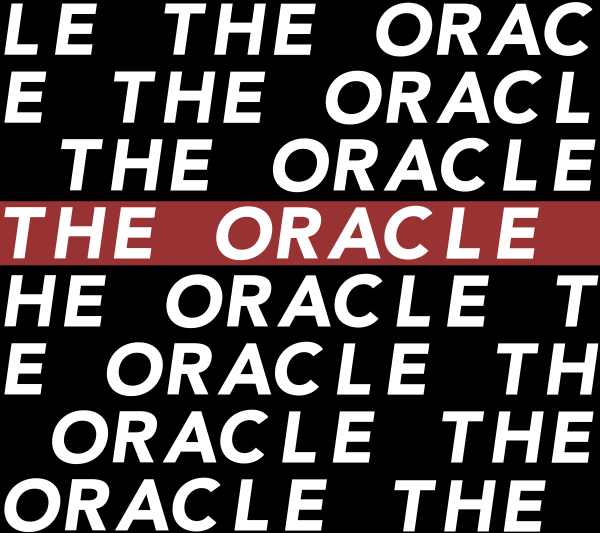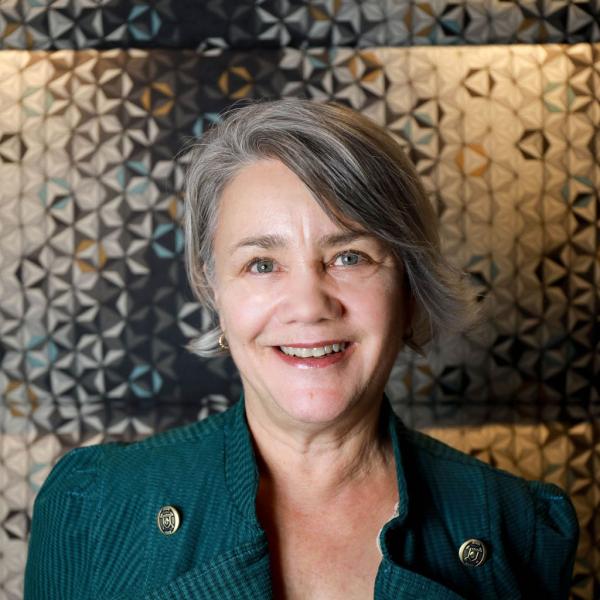Another one fights the dust
Vacuum Gate leaves faculty in a messy situation.
March 15, 2017
Faculty and staff received a less-than-welcome surprise last month when they opened their inboxes to find that Margaret Tungseth, Vice President for Finance and Administration, had emailed them with a new implementation.
On Feb.1, Tungseth informed faculty and staff that the custodial workers would no longer take out their garbage and recycling bins or vacuum their offices; instead they would have to clean their own offices.
The plan was created by the Administrative Cabinet, the University Leadership Team and the President’s Staff to reallocate hours with the efforts to prioritize clean-up in student-heavy locations.
“We did an analysis to determine what hours we would actually save by doing this and where they would go,” Tungseth said. “Our concern has been [that] one of our overused buildings on campus is the Anderson Center, rightfully so. It’s there for students to use and if it’s not being used then shame on us but with that [success] comes additional cleaning.”
Tungseth explained that they gained 60 hours a week.
“It was thoughtful, it was planned and we’re hoping that we can better serve the students and our public face, while not causing angst for our community members,” Tungseth said.
The new expected practice, informally called “Vacuum Gate,” brought controversy to the campus.
“Personally, I [wouldn’t] mind doing it… [but] I will not do it,” said History Professor John Mazis.
Mazis is one of many professors opposed to Vacuum Gate.
“We were told, not asked,” Mazis said. “Universities are run in a way which means administration talks to the faculty, then we come to an agreement.”
Communications and International Journalism Professor Suda Ishida was also concerned with the communication.
“To me, this issue is far from being about the ‘vacuum’ itself. It is more about how we communicate with one another,” Ishida said. “Currently, the Hamline community is dealing with political, social and economic pressures from many different fronts, locally and nationally. After the long process of program reviews, faculty members have felt disenfranchised and unappreciated for the hard work we’ve been doing and contributing to the university.”
Mazis brought up another political perspective.
“Another dimension which I take seriously is that many of us come from other countries and from the countries we come, professionals cleaning anything is used as punishment,” Mazis said. “It says contempt for the faculty: that nobody thought there should be a meeting, nobody thought to tell the faculty beforehand.”
Tungseth commented on the miscommunication. She explained that the Administrative Cabinet and University Leadership Team are responsible for reporting up and down.
“Could it have been communicated better? Probably,” Tungseth said. “Redundancy is always a good tool but hopefully we learned from this and in the future do a better job with communicating.”
Tungseth continued to explain the process of creating the proposal.
“It wasn’t sudden. It has been a proposal, prior to when it was released, was out for at least six months. It took time to determine what hours would be reallocated.”
Mazis brought up an issue with faculty contracts.
“My contract comes from the faculty handbook and that handbook says nothing about faculty cleaning their own offices; it says that [custodial staff] clean,” Mazis said. “If the administration decides that they can make me do something not in my contract, it becomes a legalistic issue.”
Around campus, there are concerns that this also means taking jobs away from the unionized workers, but Tungseth promises it is just moving hours around.
When asked if they could hire more custodial workers, she commented: “We do have budgetary restraints so what we are trying to do is reallocate our resources more efficiently and more effectively.”
Due to this and other reasons, Tungseth believes that faculty will in this case have to bite the bullet and adapt.
“Any time we make a change, it’s not easy,” Tungseth said. “It’s not abnormal on university settings to be responsible for your own personal space and even with the cleaning we did have prior to this. We’re all in this together. Last Friday I cleaned my office. I usually work late so I spent from 9-10 o’clock at night cleaning my office.”






